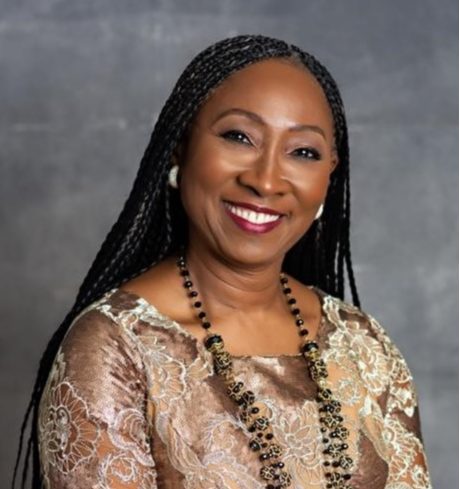
In the past decade, Nigeria has experienced a significant transformation in its corporate and entertainment industries, with a notable surge of women stepping into high-level leadership roles as Chief Executive Officers (CEOs). While leadership in Nigeria has traditionally been male-dominated, today, more women are shattering long-standing barriers and leading some of the nation’s most influential organizations.
Over the years, Nigerian women faced multiple challenges in advancing their careers, especially in leadership positions. Cultural norms, gender stereotypes, and societal expectations often place women at a disadvantage in the corporate arena. However, attitudes towards gender equality are evolving, and there is now greater recognition of the value of diverse leadership teams. The growing focus on inclusivity and the push for more equitable representation are driving a major shift.
In recent years, Nigeria has seen an increasing momentum for women to assume leadership roles, not just in politics and social movements but also in business. Several key factors are behind this positive change, including the efforts of women’s rights groups, the implementation of progressive policies, and global movements that emphasize the importance of diversity in leadership.
Prominent Female CEOs in Nigeria
The rise of women in top executive roles has been particularly noticeable in industries such as finance, technology, telecommunications, and energy—fields that were once largely considered the domain of men. Here are some women who have become trailblazers in their respective sectors:
1. Amina Oyagbola – Executive in Nigerian Banking

Amina Oyagbola is a Nigerian legal executive born in the year 1961, April. She is a Legal Adviser, Independent director and versatile business leader, a former Human Resources and Corporate Services Executive at MTN Nigeria with over 30 years’ experience.
Mrs Oyagbola has made significant progress in Nigeria’s banking industry, establishing herself as an influential figure.
Her success represents a broader shift in the corporate culture, signaling that women are increasingly being recognized in leadership positions within the financial sector.
2. Mo Abudu – CEO, EbonyLife Media

Born in the year 1964, has always been a Nigerian media mogul, philanthropist, and former human resources management consultant.
Modupe Abudu is a powerful media mogul and the CEO of EbonyLife Media, one of the largest and most successful entertainment companies in Africa.
Abudu has revolutionized the Nigerian entertainment industry with her innovative work in television and film production. Her leadership has set the standard for African content on global platforms, making her a trailblazer for women in media and entertainment.
View this post on Instagram
3. Veekee James – CEO, Veekee James Couture

A leader in the Nigerian fashion industry, Veekee James has made her mark with her fashion brand, Veekee James Couture.
Her success not only underscores the prominence of women in business but also highlights the vital role women are playing in the rapidly growing Nigerian fashion sector.
View this post on Instagram
4. Hilda Baci – CEO, Food By Hilda Restaurant

Hilda Baci, a Guinness world record-holder, and accomplished chef, has emerged as a significant player in Nigeria’s culinary and hospitality sectors.
Her restaurant, Food By Hilda, is known for its innovative approach to catering, and her leadership reflects the increasing recognition of women in the hospitality industry.
View this post on Instagram
5. Funke Akindele – CEO, FAAN Network

Funke Akindele, widely recognized for her role in Nollywood as an actress and producer, is also the CEO of FAAN Network.
Her work in film production and her success as a female leader in the entertainment industry have made her an influential figure in both business and the arts. She is the producer of top trending movies like Everybody Loves Jenifa, A Tribe Called Judah, Omo Ghetto, and a few more.
View this post on Instagram
Key Factors Behind the Rise of Female CEOs
The growth in the number of women CEOs in Nigeria can be attributed to several important factors that have created a more conducive environment for female leadership.
Education and Empowerment
More Nigerian women are pursuing higher education and advanced degrees, equipping them with the skills and knowledge needed to excel in leadership roles. Access to education has empowered women to take on executive positions across various industries.
Corporate Advocacy and Diversity Initiatives
There is a growing focus on diversity and inclusion in recruitment and corporate practices. More organizations are actively seeking to increase female representation in leadership, with mentorship programs and leadership training initiatives playing key roles in preparing women for executive positions. Organizations like Nigerian Women in Leadership (NWL) and African Women in Leadership Organization (AWLO) have provided essential platforms for networking and skill-building.
Mentorship and Supportive Networks
The increasing visibility of female leaders has encouraged mentorship programs and support networks that guide emerging women leaders. These initiatives are helping women in senior positions to mentor and create opportunities for the next generation of female executives.
Challenges Still Faced by Women
Despite the progress, women in Nigeria continue to face several hurdles when striving for leadership roles:
Gender Bias and Discrimination
Women in executive roles often face gender biases, whether overt or subtle, that undermine their leadership potential. Prejudices related to their capabilities or concerns over balancing professional and personal responsibilities can still be significant barriers.
Cultural Expectations and Societal Norms
In many parts of Nigeria, traditional gender roles continue to influence how women in leadership are perceived. Societal expectations often dictate that women should prioritize family responsibilities, which can limit their career progression and opportunities for leadership roles.
Access to Funding and Resources
Female entrepreneurs, particularly those aiming to scale their businesses, often face challenges in securing financing and resources. Women’s access to capital is still disproportionately limited, which can hinder their business growth and potential for leadership.
Work-Life Balance
Maintaining a balance between career demands and family life remains a significant challenge for women in high-level positions. The absence of adequate support structures, such as flexible working hours or childcare facilities, can make it more difficult for women to succeed in demanding leadership roles.
The Future Outlook for Female CEOs in Nigeria
The increasing number of female CEOs in Nigeria signals a positive shift in leadership dynamics. However, there is still much work to be done to ensure that more women rise to top leadership positions across industries. As the nation continues to implement more inclusive policies and foster a supportive environment for female entrepreneurs and executives, the number of women in top positions is expected to grow.
The success of female leaders in Nigeria motivates other women to pursue similar paths and underscores the importance of diversity and inclusion in leadership. In the coming years, as gender stereotypes continue to diminish, more women are poised to lead transformative change in Nigeria’s economy and society.
In conclusion, while challenges persist, the increasing presence of female CEOs in Nigeria reflects the changing tides in corporate leadership. With continued support, mentorship, and opportunities, the future is bright for women who aspire to shape the nation’s landscape for generations.


